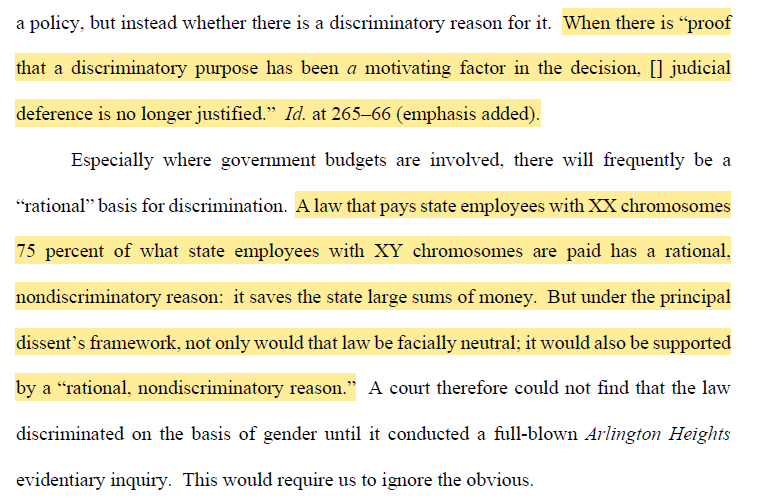National
LGBTQ elder care facilities open nationwide, but discrimination persists
Advocates say seniors face challenges despite groundbreaking advances
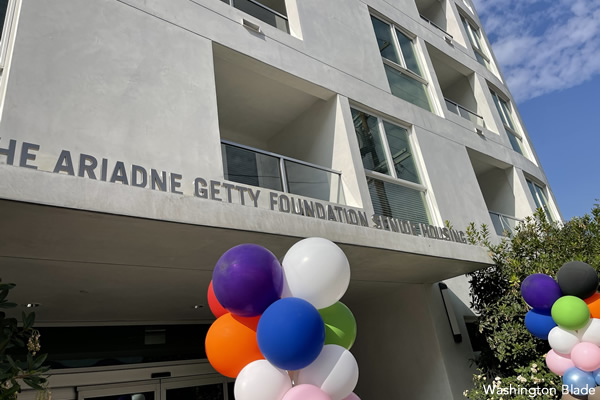
Marsha Wetzel, an out lesbian, shared her life with her partner of 30 years, Judith Kahn, at the couple’s home in Illinois until Kahn died in 2013 of colon cancer.
As is the case with some same-sex couples who never married, Kahn’s family took legal possession of the couple’s home several years later, forcing Wetzel, who suffered from severe arthritis, to move into the Glen St. Andrew Living Community, a retirement and assisted living facility in Niles, Ill.
According to a lawsuit filed on her behalf in 2016 by the LGBTQ litigation group Lambda Legal, when word got out that Wetzel was a lesbian after she disclosed her sexual orientation to a fellow resident, she was called homophobic slurs, spat on, and assaulted on several occasions by other residents of the facility. The lawsuit, which later resulted in a court ruling in Wetzel’s favor, charged that officials at the Glen St. Andrew facility illegally failed to take action to prevent Wetzel from being subjected to abuse and threats by fellow residents and retaliated against her when she complained.
Lambda Legal announced one year ago, on Nov. 20, 2020, that Wetzel passed away at the age of 73 of natural causes after a landmark 2018 appeals court ruling in her favor affirmed that residential facilities such as the one in which she lived are legally responsible for the safety of tenant residents.
“Marsha spent the rest of her days in a senior living community where she was out and affirmed,” said Lambda Legal attorney Karen Loewy, who represented Wetzel in the lawsuit.
Advocates for LGBTQ seniors were hopeful that the 2018 U.S. Court of Appeals for the Seventh Circuit ruling in the Wetzel case would speed up the gradual but steady advances in the rights of LGBTQ elders in long-term care facilities and in society in general.
A short time later, the New York City-based national LGBTQ elder advocacy group SAGE expanded its programs providing cultural competency training for the nation’s long-term care residential facilities. And in some cities, including New York, Los Angeles, and San Francisco, LGBTQ specific retirement and long-term care facilities began to open to provide LGBTQ elders with a wide range of “wrap around” services in addition to a safe place to live.
But LGBTQ elder advocates were taken aback in October of this year when news surfaced that transgender U.S. Army veteran Lisa Oakley, 68, was denied placement in more than two-dozen long-term care facilities in Colorado in 2020 and earlier this year.
“When they found out I was transgender, a lot of the facilities didn’t want me,” Oakley told USA Today. “A lot of transgender people, I’m sure, face the same thing,” she said. “We’re humans, just like everybody else.”
Oakley told other media outlets her ordeal in trying to gain admission to a residential care facility began in October 2020, when she became unable to care for herself due to complications from diabetes. Her first choice was a facility in her hometown in rural Craig, Colo., where she had lived for the previous 25 years. She believes that facility turned her down because of her gender identity.
A social worker who assisted in Oakley’s applications for long-term care facilities said the facility in Craig said Oakley would have to be placed in a private room, which was at the time unavailable, “because she still has her ‘boy parts’ and cannot be placed with a woman” in a shared room.
Many other Colorado facilities to which Oakley applied for admission, according to social worker Cori Martin-Crawford, cited the COVID pandemic as the reason for not accepting new residents. But as COVID related restrictions began to subside, other facilities continued to deny Oakley admission.
With Martin-Crawford’s help, Oakley finally found a facility that is LGBTQ supportive in Grand Junction, Colo., which is nearly three hours away from her hometown of Craig, where she had hoped to remain.
LGBTQ activists expressed concern that the discrimination that Oakley faced took place in the state of Colorado, which has a state law that bans discrimination based on sexual orientation and gender identity. Experts familiar with long-term care facilities for older adults have said many private elder care facilities can get around state LGBTQ nondiscrimination laws by claiming other reasons for turning down an LGBTQ person.
Michael Adams, the CEO of SAGE, told the Blade that the wide range of programs and initiatives put in place by SAGE and other groups advocating for LGBTQ elders in recent years have resulted in significant changes in support of LGBTQ seniors.
“It is the case now that in almost all states there are one or more elder care facilities that have been trained through our SAGECare program,” Adams said. “But it’s nowhere near what it needs to be,” he said. “It needs to be that there are welcoming elder care facilities in every single community in this country” for LGBTQ elders.
Adams was referring to the SAGE program started recently called SAGECare that arranges for employees and other officials at elder care facilities throughout the country to receive LGBTQ competency training. The facilities that participate in the program are designated “SAGECare credentialed,” and are included in SAGE database lists available to LGBTQ elders looking for a safe facility in which to reside.
SAGE spokesperson Christina Da Costa provided the Blade with data showing there have been 136,975 professionals trained at a total of 617 SAGECare credentialed organizations nationwide. Out of 617 organizations, 172 are residential communities. Also, out of the total of 617 are 167 Area Agencies on Aging, Aging and Disability Resource Centers, Senior Centers, and senior Ombudsman offices.
Da Costa said 278 of the credentialed entities that have received the SAGECare training throughout the country are “other aging focused nonprofit and for-profit businesses.”
According to SAGE, there are 12 SAGECare credentialed elder care facilities or service providers operating in the D.C. metropolitan area, with two located in D.C. One of the D.C. facilities is Ingleside at Rock Creek, located in Northwest D.C., which is a residential facility. The other is Options for Senior America, a company that provides in-home care services for seniors, including seniors living in D.C.
A SAGE list of the D.C.-area SAGECare credentialed facilities shows that three are in Rockville, Md.; two are in Gaithersburg, Md.; and one each are in Bethesda, Md.; Arlington, Va.; and Alexandria, Va. The list shows that one of them that provides services to elders in the D.C. area is based in North Carolina.
SAGE has a separate list of the 15 elder care residential facilities in the U.S. created specifically to serve LGBTQ residents.
None are in D.C., Maryland, or Virginia. However, SAGE says it has been working in cooperation with Mary’s House for Older Adults, a D.C.-based LGBTQ organization that advocates for LGBTQ seniors and is in the process of opening LGBTQ elder residential facilities in D.C. and others in the surrounding suburbs.
Mary’s House founder and CEO Dr. Imani Woody couldn’t immediately be reached to determine when the organization expects to open its first residential facility.
While a residential LGBTQ elder facility has yet to open in the D.C. area, activists note that in addition to Mary’s House, services and amenities for LGBTQ elders in the area are currently being provided by the D.C. Center for the LGBT Community and Whitman-Walker Health, the LGBTQ supportive health center, which also has a legal services branch.
Adams of SAGE said the Los Angeles LGBTQ Center opened the nation’s first LGBTQ elder residential facility over eight years ago called Triangle Square. He said the L.A. Center opened a second LGBTQ elder residential facility a short time later. And this week, the L.A. Center announced it has opened a third LGBTQ elder residential facility in Hollywood that is part of a larger “intergenerational campus” that will bring together LGBTQ seniors and LGBTQ youth.
SAGE, meanwhile, operates two LGBTQ elder long-term care residential facilities in New York City, one in Brooklyn called the Stonewall House and one in the Bronx called Pride House.
The other U.S. cities with LGBTQ elder residential facilities include: Philadelphia, Minneapolis, Chicago, Cleveland, San Francisco (which has two such facilities), San Diego, Houston, Fort Lauderdale, and Islip, N.Y.
Adams said the LGBTQ elder residential facilities range in size, with the largest – New York’s Stonewall House – having 143 apartments that can accommodate 200 residents. He said others vary from 40 or 50 residential units to 120.
Advocates for LGBTQ elders point to what they consider another important breakthrough for LGBTQ elders this year in the release of a joint SAGE-Human Rights Campaign Long-Term Care Equality Index report for 2021. Adams said the report is the first of what could become an annual report and rating and scorecard for long-term care elder residential facilities and other elder facilities.
The 2021 report includes a self-reporting assessment of elder care facilities that the facilities themselves completed through a questionnaire in which many disclosed they have LGBTQ nondiscrimination policies for elders around admission to the facility and for practices by staff for those residing in their facilities.
The report includes a chart showing that 158 elder care facilities in 31 states responded positively to the outreach to them by organizers of the Long-Term Care Equality Index.
“We are thrilled to be working with SAGE and to be working with the Human Rights Campaign who are developing the Long-Term Care Equality Index,” said Nii-Quartelai Quartey, who serves as senior adviser and LGBTQ liaison for the American Association of Retired Persons or AARP.
“There is a great deal of work that we’re doing in the area of LGBTQ older adults nationwide,” Quartey told the Blade. “And AARP has been engaged with the LGBTQ community nationwide for many years now,” he said.
“In recent years, we’ve turned up the volume in working more closely with organizations like SAGE and Lambda Legal and the Victory Fund Institute, the Center for Black Equity, the National Queer Asian Pacific Islander Alliance, and the Hispanic Federation.”
According to Quartey, a recent AARP study of LGBTQ elders called Maintaining Dignity shows that longstanding concerns of discrimination remain despite the many advances in support for LGBTQ seniors in recent years.
He said a survey that was part of the study found that 67 percent of the LGBTQ elders who responded, “were concerned about neglect in a long-term care setting.” Over 60 percent feared verbal or physical harassment in a long-term care setting and over half “felt forced to hide or deny their identity” as an LGBTQ person, Quartey said.
Another recent survey of LGBTQ elders conducted by SAGE asking them how they feel about the use of the word “queer” in descriptions of LGBTQ people yielded findings that came as a surprise to some, according to Adams. A large majority of those surveyed from across the country said they are “comfortable at this point using that word and reclaiming that word, which is different from what we had heard historically,” Adams said.
He said in response to those findings SAGE will now as an organization gradually shift to using the term LGBTQ instead of its past practice of using LGBT.
Although Congress has yet to pass the Equality Act, last year under the Trump Administration, Congress acted in a rare bipartisan way to approve the required five-year reauthorization of the U.S. Older Americans Act with new language supportive of LGBTQ older adults. President Trump signed the legislation.
The language includes a mandate for outreach to and reporting about services provided to LGBTQ older adults in federally funded programs. It also opens the way for LGBTQ older adults to be designated in a category of “greatest social need.” Under that category, older adults receive a higher priority in the allocation of resources by the federal government.
“We’ve come a long way, but we still have a way to go to get over the finish line,” said the AARP’s Quartey. “And aside from passing legislation federally and on the state and local level, we absolutely need to continue the hard work of changing hearts and minds,” he said.
Longtime gay activist and writer Brian McNaught, whose latest book, “On Being Gay and Gray – Our Stories, Gifts, and the Meaning of Our Lives,” was just released, says his own very informal survey of LGBTQ elders found there is a need for intimacy that may be too controversial for the establishment LGBTQ elder groups.
“I’m a SAGE volunteer and the 81-year-old man with whom I was working after his husband of 47 years died, said after his grieving process, ‘I want to be hugged and kissed. Does that make me a bad person?’”
McNaught told the Blade he assured the man those feelings do not make him a bad person. McNaught said the man’s comment prompted him to conduct further research, in which he found that some gay male elders in the Fort Lauderdale, Fla., area who often need assisted living support would like to patronize gay bathhouses or seek the services of an escort agency. He said he determined that any LGBTQ elder group providing such services would trigger “a huge uproar of protests” and most likely a loss of funding.
“We don’t want to talk about sexuality and aging,” McNaught said.
National
United Methodist Church removes 40-year ban on gay clergy
Delegates also voted for other LGBTQ-inclusive measures
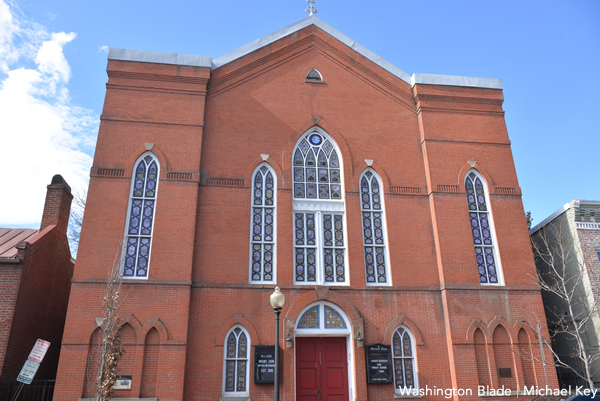
The United Methodist Church on Wednesday removed a ban on gay clergy that was in place for more than 40 years, voting to also allow LGBTQ weddings and end prohibitions on the use of United Methodist funds to “promote acceptance of homosexuality.”
Overturning the policy forbidding the church from ordaining “self-avowed practicing homosexuals” effectively formalized a practice that had caused an estimated quarter of U.S. congregations to leave the church.
The New York Times notes additional votes “affirming L.G.B.T.Q. inclusion in the church are expected before the meeting adjourns on Friday.” Wednesday’s measures were passed overwhelmingly and without debate. Delegates met in Charlotte, N.C.
According to the church’s General Council on Finance and Administration, there were 5,424,175 members in the U.S. in 2022 with an estimated global membership approaching 10 million.
The Times notes that other matters of business last week included a “regionalization” plan, which gave autonomy to different regions such that they can establish their own rules on matters including issues of sexuality — about which international factions are likelier to have more conservative views.
Federal Government
Republican state AGs challenge Biden administration’s revised Title IX policies
New rules protect LGBTQ students from discrimination

Four Republicans state attorneys general have sued the Biden-Harris administration over the U.S. Department of Education’s new Title IX policies that were finalized April 19 and carry anti-discrimination protections for LGBTQ students in public schools.
The lawsuit filed on Tuesday, which is led by the attorneys general of Kentucky and Tennessee, follows a pair of legal challenges from nine Republican states on Monday — all contesting the administration’s interpretation that sex-based discrimination under the statute also covers that which is based on the victim’s sexual orientation or gender identity.
The administration also rolled back Trump-era rules governing how schools must respond to allegations of sexual harassment and sexual assault, which were widely perceived as biased in favor of the interests of those who are accused.
“The U.S. Department of Education has no authority to let boys into girls’ locker rooms,” Tennessee Attorney General Jonathan Skrmetti said in a statement. “In the decades since its adoption, Title IX has been universally understood to protect the privacy and safety of women in private spaces like locker rooms and bathrooms.”
“Florida is suing the Biden administration over its unlawful Title IX changes,” Florida Gov. Ron DeSantis wrote on social media. “Biden is abusing his constitutional authority to push an ideological agenda that harms women and girls and conflicts with the truth.”
After announcing the finalization of the department’s new rules, Education Secretary Miguel Cardona told reporters, “These regulations make it crystal clear that everyone can access schools that are safe, welcoming and that respect their rights.”
The new rule does not provide guidance on whether schools must allow transgender students to play on sports teams corresponding with their gender identity to comply with Title IX, a question that is addressed in a separate rule proposed by the agency in April.
LGBTQ and civil rights advocacy groups praised the changes. Lambda Legal issued a statement arguing the new rule “protects LGBTQ+ students from discrimination and other abuse,” adding that it “appropriately underscores that Title IX’s civil rights protections clearly cover LGBTQ+ students, as well as survivors and pregnant and parenting students across race and gender identity.”
Federal Government
4th Circuit rules gender identity is a protected characteristic
Ruling a response to N.C., W.Va. legal challenges
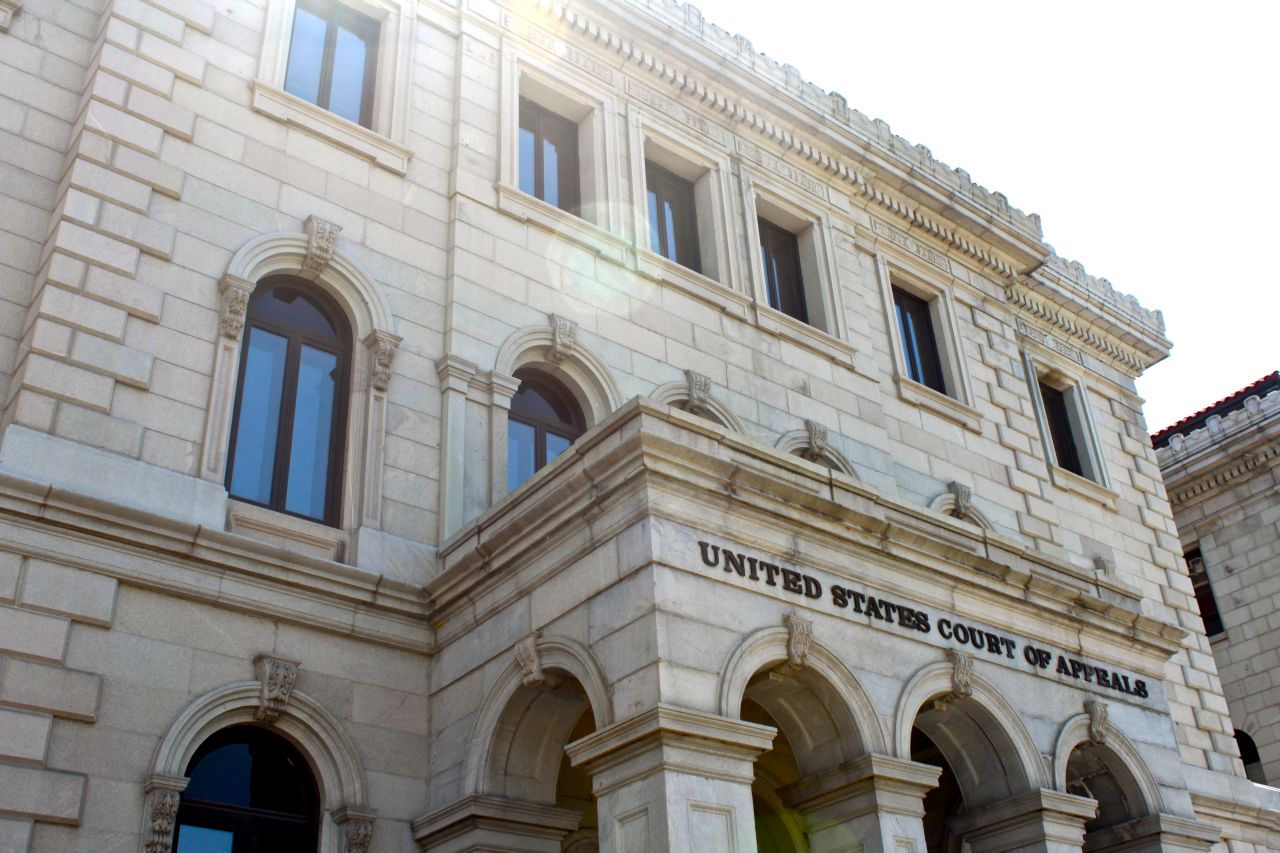
BY ERIN REED | The 4th U.S. Circuit Court of Appeals ruled Monday that transgender people are a protected class and that Medicaid bans on trans care are unconstitutional.
Furthermore, the court ruled that discriminating based on a diagnosis of gender dysphoria is discrimination based on gender identity and sex. The ruling is in response to lower court challenges against state laws and policies in North Carolina and West Virginia that prevent trans people on state plans or Medicaid from obtaining coverage for gender-affirming care; those lower courts found such exclusions unconstitutional.
In issuing the final ruling, the 4th Circuit declared that trans exclusions were “obviously discriminatory” and were “in violation of the equal protection clause” of the Constitution, upholding lower court rulings that barred the discriminatory exclusions.
The 4th Circuit ruling focused on two cases in states within its jurisdiction: North Carolina and West Virginia. In North Carolina, trans state employees who rely on the State Health Plan were unable to use it to obtain gender-affirming care for gender dysphoria diagnoses.
In West Virginia, a similar exclusion applied to those on the state’s Medicaid plan for surgeries related to a diagnosis of gender dysphoria. Both exclusions were overturned by lower courts, and both states appealed to the 4th Circuit.
Attorneys for the states had argued that the policies were not discriminatory because the exclusions for gender affirming care “apply to everyone, not just transgender people.” The majority of the court, however, struck down such a claim, pointing to several other cases where such arguments break down, such as same-sex marriage bans “applying to straight, gay, lesbian, and bisexual people equally,” even though straight people would be entirely unaffected by such bans.
Other cases cited included literacy tests, a tax on wearing kippot for Jewish people, and interracial marriage in Loving v. Virginia.
See this portion of the court analysis here:
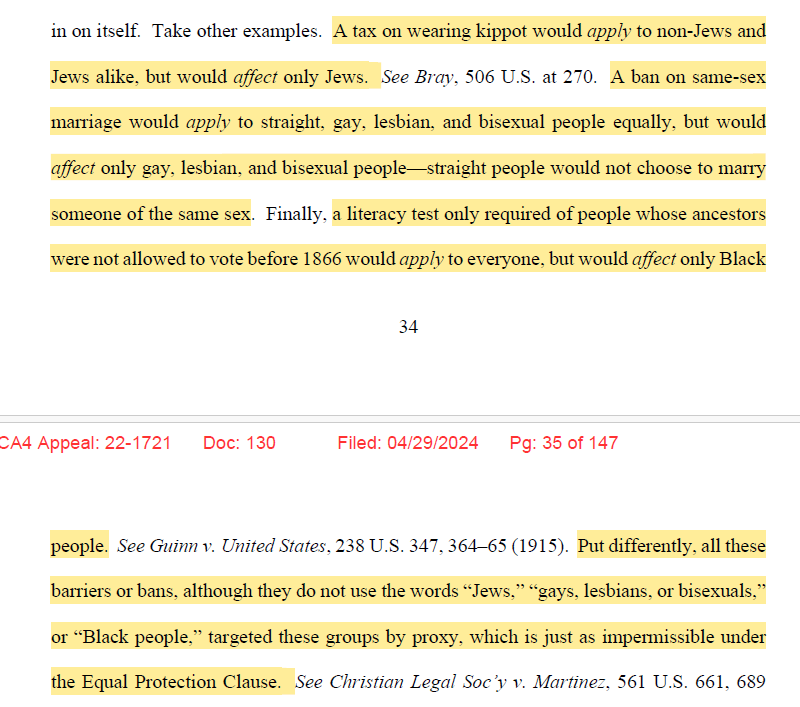
Of particular note in the majority opinion was a section on Geduldig v. Aiello that seemed laser-targeted toward an eventual U.S. Supreme Court decision on discriminatory policies targeting trans people. Geduldig v. Aiello, a 1974 ruling, determined that pregnancy discrimination is not inherently sex discrimination because it does not “classify on sex,” but rather, on pregnancy status.
Using similar arguments, the states claimed that gender affirming care exclusions did not classify or discriminate based on trans status or sex, but rather, on a diagnosis of gender dysphoria and treatments to alleviate that dysphoria.
The majority was unconvinced, ruling, “gender dysphoria is so intimately related to transgender status as to be virtually indistinguishable from it. The excluded treatments aim at addressing incongruity between sex assigned at birth and gender identity, the very heart of transgender status.” In doing so, the majority cited several cases, many from after Geduldig was decided.
Notably, Geduldig was cited in both the 6th and 11th Circuit decisions upholding gender affirming care bans in a handful of states.
The court also pointed to the potentially ridiculous conclusions that strict readings of what counts as proxy discrimination could lead to, such as if legislators attempted to use “XX chromosomes” and “XY chromosomes” to get around sex discrimination policies:
Importantly, the court also rebutted recent arguments that Bostock applies only to “limited Title VII claims involving employers who fired” LGBTQ employees, and not to Title IX, which the Affordable Care Act’s anti-discrimination mandate references. The majority stated that this is not the case, and that there is “nothing in Bostock to suggest the holding was that narrow.”
Ultimately, the court ruled that the exclusions on trans care violate the Equal Protection Clause of the Constitution. The court also ruled that the West Virginia Medicaid Program violates the Medicaid Act and the anti-discrimination provisions of the Affordable Care Act.
Additionally, the court upheld the dismissal of anti-trans expert testimony for lacking relevant expertise. West Virginia and North Carolina must end trans care exclusions in line with earlier district court decisions.
The decision will likely have nationwide impacts on court cases in other districts. The case had become a major battleground for trans rights, with dozens of states filing amicus briefs in favor or against the protection of the equal process rights of trans people. Twenty-one Republican states filed an amicus brief in favor of denying trans people anti-discrimination protections in healthcare, and 17 Democratic states joined an amicus brief in support of the healthcare rights of trans individuals.
Many Republican states are defending anti-trans laws that discriminate against trans people by banning or limiting gender-affirming care. These laws could come under threat if the legal rationale used in this decision is adopted by other circuits. In the 4th Circuit’s jurisdiction, West Virginia and North Carolina already have gender-affirming care bans for trans youth in place, and South Carolina may consider a similar bill this week.
The decision could potentially be used as precedent to challenge all of those laws in the near future and to deter South Carolina’s bill from passing into law.
The decision is the latest in a web of legal battles concerning trans people. Earlier this month, the 4th Circuit also reversed a sports ban in West Virginia, ruling that Title IX protects trans student athletes. However, the Supreme Court recently narrowed a victory for trans healthcare from the 9th U.S. Circuit Court of Appeals and allowed Idaho to continue enforcing its ban on gender-affirming care for everyone except the two plaintiffs in the case.
Importantly, that decision was not about the constitutionality of gender-affirming care, but the limits of temporary injunctions in the early stages of a constitutional challenge to discriminatory state laws. It is likely that the Supreme Court will ultimately hear cases on this topic in the near future.
Celebrating the victory, Lambda Legal Counsel and Health Care Strategist Omar Gonzalez-Pagan said in a posted statement, “The court’s decision sends a clear message that gender-affirming care is critical medical care for transgender people and that denying it is harmful and unlawful … We hope this decision makes it clear to policy makers across the country that health care decisions belong to patients, their families, and their doctors, not to politicians.”
****************************************************************************

Erin Reed is a transgender woman (she/her pronouns) and researcher who tracks anti-LGBTQ+ legislation around the world and helps people become better advocates for their queer family, friends, colleagues, and community. Reed also is a social media consultant and public speaker.
******************************************************************************************
The preceding article was first published at Erin In The Morning and is republished with permission.







